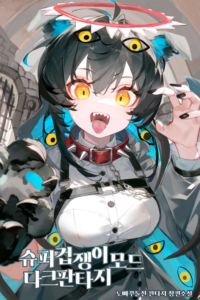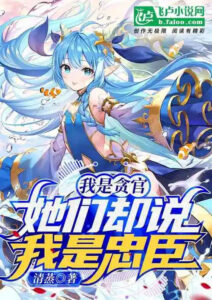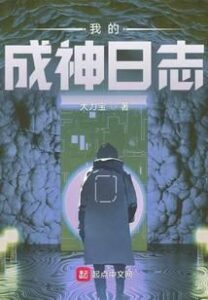Chapter 45
While translating “Twenty Thousand Leagues Under the Sea” with the chief magician’s advice, the final review process for Jules Verne’s “The Mysterious Island” also kicked off.
Translating “The Mysterious Island” was much simpler.
This was mainly due to the difference between “Twenty Thousand Leagues Under the Sea,” an exploration narrative, and “The Mysterious Island,” a survival story. As someone who has plagiarized works from my past life, I didn’t have to worry too much apart from historical accuracy.
Moreover, back on Earth in my previous life, “The Mysterious Island” was often reimagined as a “fairy tale” or a “recommended book for elementary students,” so I had summarized it several times before.
“Sion, what do you think?”
“Hmm, both of these works are so excellent that it’s hard for me to say… I’m not sure if it’s okay for me to compare these two novels.”
“I’d still like to hear your thoughts.”
“Personally… I find ‘Twenty Thousand Leagues Under the Sea’ a bit more thrilling. The story of exploring the sea feels incredibly romantic to me.”
Sion gave a slightly higher rating to “Twenty Thousand Leagues Under the Sea.”
Since both works are representational pieces by the same author, it could be simply a matter of my translation. However, it’s more likely that it’s because the two works pursue different directions.
“The Mysterious Island” was written for exactly the same reason as the ‘Lord of the Flies,’ which stands as its antithesis.
Isolating children and showing how they change.
In “Lord of the Flies,” William Golding imagined children’s transformations as chaos and desire. In contrast, the ever-optimistic Jules Verne envisioned the transformation of children as “growth and courage.”
This change is internal rather than external, with the targets of their exploration being of ‘inner conflict’ rather than ‘unknown lands.’
And it seemed that Sion found more romance in exploring the mysterious depths of the sea in “Twenty Thousand Leagues Under the Sea.” Perhaps that’s partly because he had grown up alongside me from a young age.
I was just someone who stayed indoors reading books, so Sion never got to travel much either.
“Sion, do you have a desire to go on an adventure?”
“No.”
“Hmm?”
“I don’t wish to go far. For me, the young master’s literature is like the deep sea and an island. When I help the young master, I glimpse the boundaries of ‘literature’ that I didn’t know existed before and hearing its name fills me with a sense of true freedom.”
Sion spoke without a hint of hesitation in his voice.
There was something in that statement indicative of “strength.” Sion was brimming with conviction.
“I still don’t fully grasp what you mean by ‘the development of literature,’ young master. That’s why I hoped you could be my captain. I may not know the map of the sea, but I believe you will guide the way step by step.”
“Like Captain Nemo?”
“Umm. Yes. Is that disrespectful?”
“Pfft, ah, I see what you mean. Thank you.”
Captain Nemo was undoubtedly a fascinating character.
He was wise and bold, a noble and mysterious figure. Aside from his baffling quirks, he was actually quite congenial.
However, beneath that charm lurked some ominous vibes.
It felt like the unease you get when peering into a bottomless ocean. Perhaps Sion saw me as that kind of person too.
[“I am not the civilized being you speak of! I have completely left society behind, and you have no right to judge that! Hence, I do not abide by its laws, and I hope you never mention those laws in my presence again!”]
Half of my soul still clung to ‘Earth.’
My appearance when I drank the Hyde potion, a blend of my past and present self, was the most evident proof.
And the sea known as ‘Earth’ was far more foreboding and unfathomable than the deep-sea darkness. At least, that was how it appeared to the people of this world.
Secrets. Mysteries. Darkness. Miracles.
To the inhabitants of this realm, the intangible ‘otherworld’ served as a distant and alien terrain that no valiant pioneer or capable adventurer could ever begin to understand. Just as Captain Nemo was the sole explorer of the abyssal depths, I was the only one acquainted with Earth.
People tend to fear or excessively revere what they don’t comprehend.
“Uh, um?”
“What’s wrong?”
“Nothing. Something just crossed my mind.”
It could be an overreach, but maybe that’s why they hailed me as a ‘Savior’ or ‘Saint of Literature’ and treated me like a deity.
They caught the whiff of inspiration from my literature that didn’t belong to ‘this world.’
The notion that there was an inspiration in my writing distinguishing it from the literature of this world had already been alluded to by an alchemist. People with heightened spiritual sensitivities—like priests or a select few writers—might have stumbled upon something alternate.
“Hmm…?”
Additionally, the magician had asserted that ‘possibility’ meant recreating events.
He remarked that even practice shooting at humanoid targets by the imperial army served to maximize such possibilities.
[“Resembling entities share possibilities, thereby birthing similar events… That’s why tricks like bloodlines or magic towers work…”]
Numerous events that transpired in this world. The slight disharmony I felt while drafting works like Don Quixote or Sherlock Holmes.
Reactions from readers back in the historical literary journey of my past life echoing similarly in this world. The prank played on Lionel Balzac by a fairy.
Putting all these observations together, one could come up with quite an entertaining hypothesis.
I initially believed it was just the ‘power of literature’ that classics possessed, but perhaps…
“Was magic at play…?”
There might have been some magical thread weaving together the literature of ‘Earth’ and the works I had ripped off.
It was so abstract that it could occur even without magic.
The fascination that readers had with chivalry and the character Don Quixote, families who lamented with “Why did you kill Sherlock?” after hearing about Sherlock Holmes’ demise, and young nobles who imitated Werther’s attire after diving into The Sorrows of Young Werther.
These were all things that could happen even without magic.
It had been the same in the history of my past life, and all the great classics I had borrowed were imbued with a sort of magic. It wasn’t outrageous to think this rationally.
And.
“If magic makes it possible, then ultimately, it should also be achievable without it…”
Let’s swing back to the chit-chat about my soul.
My essence was the singular link connecting ‘Earth’ and ‘this world.’ This spirit adored literature, sometimes longed for my past earthly life, and cherished that nostalgia alongside even the minutest scrap of information as essential to ‘literature.’
Plus, I had racked up tons of experience translating countless ‘classical works.’
Translating classic literature is a labor-intensive task. It often involved scrapping and rewriting sentences multiple times to encapsulate the era’s atmosphere. Just as a soldier repeatedly takes aim at a target to enhance accuracy, a translator needs to rewrite the same sentence several times to nail down its essence.
During the process, one studies the history of the era when the classic literature was penned, hunts for various papers and references for footnotes, and searches for anecdotes worth including in the ‘Translator’s Note.’
Only after trudging through this arduous journey does a ‘translation’ come to fruition.
Thus, the task of a translator was to conjure the author’s work like magic. It wasn’t all that different from being a magician.
“No wonder my translations were flowing so smoothly…”
It’d be nice if this were just a wild guess…
But maybe, just maybe, the very ‘history of Earth’s literature’ had taken up residence in my soul. Using the works I had translated as the bridge.
I was infecting this world with ‘Earth!’
…..
“Not looking too chipper today? Is it because I showed up?”
“No way! I could never dislike seeing you, my lady.”
“I never said you disliked me, you know? Seems like Homer finds it unpleasant to catch a glimpse of me, huh?”
“No, it’s not like that.”
“I actually enjoy coming to see you, Homer.”
“…I’m honored.”
The lady popped in as unpredictably as ever.
Leaning back on the reception room sofa, she slightly tilted her head and looked at me with a puzzled expression.
“So, is something bothering you? You seem unwell.”
“Uh, I have a bit of personal turmoil.”
Just as I had stated, I was wrestling with a hypothesis.
Maybe my literature was infecting this world with ‘Earth’s literature.’
Of course, it didn’t stray too far from my original goal.
To swiftly advance the literature of this world through the classics from my past life. To illuminate the path with diverse literary movements, fresh paradigms, and plots that have been endlessly scrutinized was my aim.
However…
“I was feeling joyful that things were progressing swiftly, but the outcome is slightly different from my initial expectations.”
“Ah! That often happens.”
“Yet the end result isn’t terrible. I could even call it somewhat good. It’s just that my original concept was overly ambitious, which leaves me feeling a tad uneasy.”
“Hehe, so even a brilliant author like you deals with such dilemmas? I thought you were merely a genius writer—seems like you have more relatable sides than I imagined?”
What I was aiming to cultivate was fertile soil for new literature to bloom, not for mere crops to grow to fill bellies.
Ultimately, my goal was to witness completely new and fascinating works arise from the fusion of ‘the literary styles of my previous life’ with this world’s culture, thoughts, religion, and values. New classics and new literary movements.
As this world only held ‘chivalric literature,’ I utterly obliterated it with ‘Don Quixote.’
To prevent literature from stagnating, I devised copyright laws.
I shattered norms of existing literature with ‘Dr. Jekyll and Mr. Hyde,’ broadened accessibility in literature with ‘The Conan Saga,’ and broke taboos with ‘The Sorrows of Young Werther.’
I distributed the genre techniques of ‘detective fiction’ and ‘romance novels,’ and I even had plans to spread SF and adventure writings now.
“So, that brings me to my dilemma. It’s genuinely disheartening.”
But if the results are merely a retread of ‘my previous life.’
And if, just like my routine of diving into Kyobo Bookstore after work to find new releases, my only ‘miracles’ to marvel at could be new novels of similar genres.
It feels like a tad much after coming all the way to another world.
Isn’t that slightly disappointing?
The princess’s response to my grievance was straightforward.
“In that case, why don’t you leave it to the readers?”
“Pardon?”
“You might think it’s just a ‘usual’ novel, but readers could have a completely different perception, right? Some may demean Homer as outdated, while others might exalt it as his finest work. Is it pointless to worry about it solo?”
“Umm.”
“At least for me, Homer’s novels have always been the most delightful and entertaining. Hence, I’m eager to see more. Release new works more frequently, will you?”
“……”
Leave it to the readers…
In my case, that would mean leaving it to the author. And truthfully, that simple suggestion was indeed a profound truth.
“You’re right…. Ultimately, it seems I have no choice but to hand it to the readers.”
“Right? So, when is your next piece coming out?”
“Thank you, Princess.”
“No worries, it’s my pleasure. So when is your next piece—?”
“Thanks to you, I now feel clearer about everything.”
“Do you perhaps not like me?”
“I like you.”
“…Excuse me?”
“I genuinely enjoyed ‘Dr. Jekyll and Mrs. Hyde.’”
At the end of the day, it’s the author who writes the work.
No matter how much I, the plagiarizing author, blabber on about magic and Earth’s literature, it’ll only sound pretentious.
Sometimes, even genres thought to be dead could sprout great works.
As a reader, my job is merely to declare.
“Princess, I look forward to your next creation.”
“…Ah, yes. Touché.”
“Pardon?”
“Geez, you’re telling me not to just sit around passively, huh? That’s a bit unfair… Alright, well, I’m also a writer after all… I have a piece I’ve been preparing to showcase at the academy.”
“Haha, great.”
It was about putting trust in the author.
“I believe in you, Lady Es.”
“I look forward to it too, Homer.”
You may also like Mesugaki Tank Enters The Academy







